Stomach Acid & Heartburn: What’s really going on?
Before we dive into what’s actually going on when you experience heartburn, let’s back up and talk a little bit about what stomach acid is and why it’s important.
When food enters the stomach, primarily protein since this is the primary site of protein digestion, the cells of the stomach which we call the parietal cells secrete HCL and pepsin. These two combined optimize protein breakdown. They also leave an acidic residue on food leaving the stomach and entering the small intestine. Now, this acidic residue is absolutely essential to all remaining aspects of digestion because it triggers the pancreas to secrete pancreatic enzymes for what I call the grand finale of digestion. Pancreatic enzymes break down all remaining protein, fats, and carbohydrates into their smallest substrates so they can be absorbed into the bloodstream from the small intestine.
Stomach acid is a prerequisite to healthy digestion so when stomach acid is low (aka too basic), then the pancreas won’t get the message to secrete pancreatic enzymes and digestion will be impaired. Another issue of low stomach acid is that large, undigested proteins will enter the small intestine where they can putrefy, causing gas, bloating, and other digestive issues. There’s also the risk that these large undigested proteins may end up in the bloodstream (remember when we talked about leaky gut). Since this is not supposed to happen, the body reacts to these proteins as if they are foreign invaders, causing allergy, autoimmune, and food sensitivity responses.
Now let’s talk about what happens when carbohydrate digestion is impaired due to low stomach acidity. Undigested carbohydrates provoke an overgrowth of bacteria in the small intestine (a.k.a. “SIBO”) or yeast overgrowth known as candida, both of which lead to increased gas production, bloating, and irregular stool. This is because these carbohydrates attract and feed sugar loving bacteria or yeast, which allows them to take over. This is what we call dysbiosis, an imbalance in the gut flora where the “bad” bacteria have overgrown the “good” bacteria.
Let’s transition to heartburn, one of my favorite conversations around stomach acid. Conventional medicine leads you to believe that heartburn is an outcome of your body making too much stomach acid when in fact it’s the complete opposite. The esophagus is connected to the stomach by way of the esophageal sphincter and the acid levels are what cue the sphincter to close. When the stomach is not producing enough stomach acid, the sphincter doesn’t get the message, remains open, and any acid that is secreted can just shoot right back up the esophagus. Hence, the burning sensation! To mitigate heartburn, you don’t need to lower your stomach acid with ant-acids, you actually need to rebuild your acidity!
There are numerous causes of low stomach acid. The most common are:
H. pylori infection. This is extremely common; studies suggest that 1 in 2 people are infected globally. (1) H. pylori suppresses stomach acid production as a survival strategy.
Stress. Chronic stress has been shown to decrease stomach acid production.
Acid suppressing drugs. Long-term use of Prilosec, one of the most potent acid suppressing drugs, reduces the secretion of hydrochloric acid (HCL) in the stomach to near zero. (2)
Low animal protein (i.e. vegetarian/vegan) diet. I haven’t seen studies on this, but my clinical and personal experience suggest that eating a diet low in animal protein decreases stomach acid secretion over time.
Hiatal hernia. A hiatal hernia happens when the top portion of the stomach is pushed up through the normal hole in your diaphragm where the esophagus comes down. This makes a tight band around a portion of the stomach instead of lining up with that band of muscle as it should.
Age. Numerous studies have shown that stomach acid secretion declines with age. In one study researchers found that over 30 percent of men and women past the age of 60 suffer from atrophic gastritis, a condition marked by little to no acid secretion. (3) Another study found that 40% of women over the age of 80 produce no stomach acid at all. (4)
If you think you may be dealing with low stomach acid and/or have been dependent on anti-acid medication but want liberation, I recommend taking a stool panel to measure your digestive sufficiency. Through this panel, we can see how aciding your pH is, and whether or not you have meat, fiber, and fat present in your stool which are strong indicators of low stomach acid. From there, we can use a variety of approaches to naturally stimulate your body’s ability to secrete adequate amounts of stomach acid.
Don’t worry about sounding professional. Sound like you. There are over 1.5 billion websites out there, but your story is what’s going to separate this one from the rest. If you read the words back and don’t hear your own voice in your head, that’s a good sign you still have more work to do.
Be clear, be confident and don’t overthink it. The beauty of your story is that it’s going to continue to evolve and your site can evolve with it. Your goal should be to make it feel right for right now. Later will take care of itself. It always does.
